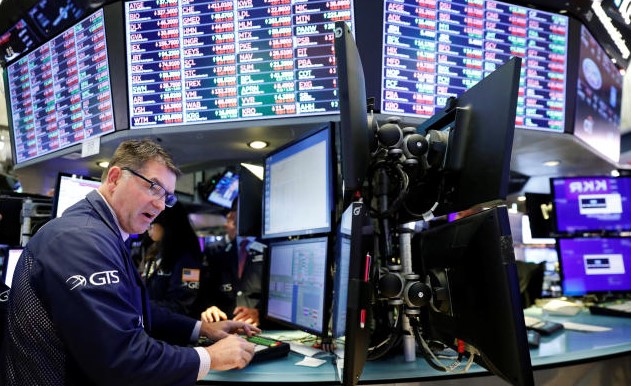As the opening bell looms on Monday, investors brace themselves for another week of market dynamics. Amidst the ever-shifting landscape of global finance, here are five essential insights to consider before diving into the trading fray. First and foremost, keep a keen eye on geopolitical tensions. From trade disputes to political unrest, geopolitical events have the potential to swiftly sway market sentiment, prompting fluctuations in stock prices across various sectors. Understanding the implications of these geopolitical developments can help investors navigate potential risks and opportunities with greater clarity.
Secondly, economic indicators play a pivotal role in shaping market trends. Pay close attention to key economic data releases scheduled for the week ahead, such as employment reports, inflation figures, and consumer spending statistics. These indicators provide valuable insights into the health of the economy, influencing investor sentiment and guiding investment strategies. By staying informed about upcoming economic announcements, investors can better anticipate market movements and adjust their portfolios accordingly.
Economic Data Releases
Before the market opens, it’s crucial to review any scheduled economic data releases that could impact investor sentiment and market direction. This includes reports on indicators such as employment figures, consumer spending, manufacturing activity, and inflation.
Positive or negative surprises in economic data can influence market expectations for future interest rate changes by the Federal Reserve and may lead to volatility in stock prices.
Corporate Earnings Announcements
Another significant factor to watch before the market opens is corporate earnings announcements. Publicly traded companies regularly release quarterly earnings reports, providing insights into their financial performance and outlook.
Investors pay close attention to these earnings releases as they can affect stock prices and market sentiment. Strong earnings results may propel stock prices higher, while disappointing earnings may lead to sell-offs.
Global Market Developments
Global market developments can also impact investor sentiment and influence the direction of the stock market. News related to geopolitical tensions, trade negotiations, central bank policies, and economic developments in other countries can have ripple effects on U.S. markets. It’s essential to stay informed about international events and their potential implications for the stock market.
Technical Analysis
Technical analysis involves studying past market data, such as price and volume patterns, to forecast future price movements. Before the market opens on Monday, traders may analyze charts and technical indicators to identify key levels of support and resistance, trend reversals, and potential entry or exit points for trades.
Technical analysis can help investors make informed decisions about timing their trades and managing risk.
Pre-market Trading Activity
Before the official opening bell, investors can monitor pre-market trading activity to gauge market sentiment and get a sense of where stocks may be headed when the market opens. Pre-market trading allows investors to buy and sell shares outside of regular trading hours, and it can be particularly volatile due to lower liquidity.
By observing pre-market price movements and trading volumes, investors can assess early market reactions to news and events and adjust their trading strategies accordingly.
By staying informed about economic data releases, corporate earnings announcements, global market developments, technical analysis, and pre-market trading activity, investors can better prepare themselves for the trading day ahead and make more informed decisions about their investments. While the stock market can be unpredictable, having a solid understanding of these key factors can help investors navigate market volatility and potentially capitalize on opportunities.



